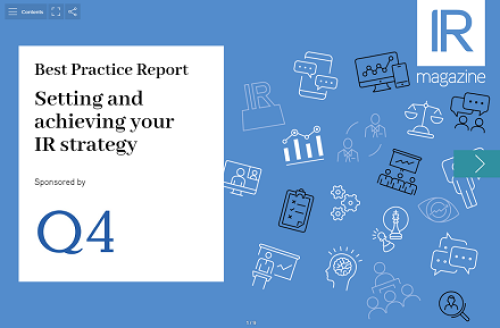European monetary policy pushing investors to currency-hedged, dividend-seeking funds, NASDAQ study finds
New client money entering Europe-focused funds so far this year has nearly doubled from the same period last year to reach almost $66 bn, largely due to the quantitative easing launched in May in the European Union, according to a NASDAQ study.
At the same time, UK-focused funds have suffered net redemptions as the Bank of England is expected to raise interest rates late this year and the country ended its last round of asset purchases in 2012, the study adds. Funds focused on the UK have seen net inflows in the three years of quantitative easing in the UK since the 2008 financial crisis, and outflows in all other years.
‘With quantitative easing playing such a vital role in terms of money flows, European IROs should look to take advantage of the inflows Europe-focused funds are seeing and attract this fresh money,’ says Alex Free, a London-based analyst with NASDAQ Advisory Services. ‘Meanwhile, UK IROs may well have to work harder to attract diminishing amounts of capital.’
The NASDAQ study further shows that investors are increasingly turning to currency-hedged funds in the existing climate of currency volatility and a weaker euro, driven by European monetary policy. Five of the 10 most successful Europe-focused funds this year are currency-hedged, led by the WisdomTree Europe Hedged Equity Fund, which is the most successful fund worldwide in terms of inflows, with a net $13.3 bn in new cash so far this year. Nearly half of the inflows into the 10 most popular active Europe-focused funds are channeled into currency-hedged options.
‘Investors are looking to protect themselves from currency risk and are investing heavily in currency-hedged options,’ says Free ‘This demonstrates the importance investors are now attaching to the risk the euro presents. On the back of this information, IROs should look to communicate their company’s hedging practices and currency exposure to investors.’
Free also suggests that IROs ‘should communicate their dividend policy effectively and companies should strongly consider paying dividends when deciding what to do with excess cash’, as the study shows historically low interest rates are driving them toward dividend-seeking funds, which have been the most successful actively managed funds in Europe and in the UK.










